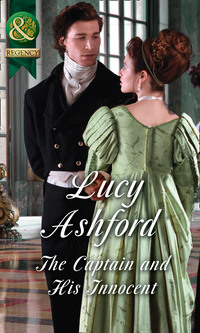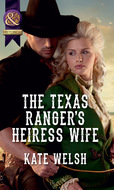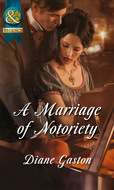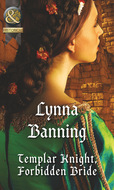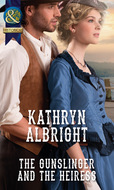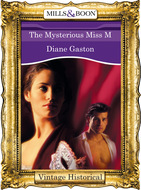Kitab fayl olaraq yüklənə bilməz, yalnız mobil tətbiq və ya onlayn olaraq veb saytımızda oxuna bilər.
Kitabı oxu: «The Captain And His Innocent»
‘Ellie,’ he broke in. ‘You talk a little too much.’
‘And I won’t allow you to silence me!’
‘Won’t you?’
She gasped. Because he was lifting the fingertips of his left hand to let them trail across her full mouth, brushing away a tiny cold snowflake that had landed there, then letting the pad of his finger travel on down to her deliciously pointed little chin.
And he leaned in and kissed her.
Just a touch. That was all Luke ever intended. Just one brief, sweet meeting of lips—but the joining of their mouths, her soft skin against his, sent lightning bolts through him, astonishing him. He saw that her eyes were closed, realised that her lips were slightly parted, and his heart drummed, his loins pounded. She was wonderfully sensual—and she was an innocent. Stop there, Luke ordered himself. God help him, everything about her shouted a warning for someone like him to stay well clear.
But he didn’t.
Author Note
You’ll see that this book is set in 1815, in the months before Waterloo, and my heroine, Ellie Duchamp, is a French refugee who has been sent by her English relative Lord Franklin to the safety of his mansion in Kent.
But nearby is the run-down estate of disreputable ex-army captain Luke Danbury, whose brother has been lost in France and labelled a traitor. As soon as Luke discovers the secret of Ellie’s past he ruthlessly resolves to blackmail her and dig out the truth about his brother—but he hasn’t reckoned on the sparks of attraction that fly instantly between the two of them!
The lonely Kent coast is beset by rumours of smugglers, intrigue and French spies. On the same side now, Luke and Ellie battle to uncover the truth—but can they really have a future together when the exposure of Ellie’s past might very well ruin them both?
Here is their story, which I really hope you’ll enjoy.
The Captain
and His Innocent
Lucy Ashford

LUCY ASHFORD studied English with History at Nottingham University, and the Regency is her favourite period. She lives with her husband in an old stone cottage in the Derbyshire Peak District, close to beautiful Chatsworth House, and she loves to walk in the surrounding hills while letting her imagination go to work on her latest story.
You can contact Lucy via her website: lucyashford.com.
MILLS & BOON
Before you start reading, why not sign up?
Thank you for downloading this Mills & Boon book. If you want to hear about exclusive discounts, special offers and competitions, sign up to our email newsletter today!
Or simply visit
Mills & Boon emails are completely free to receive and you can unsubscribe at any time via the link in any email we send you.
Contents
Cover
Introduction
Author Note
Title Page
About the Author
Chapter One
Chapter Two
Chapter Three
Chapter Four
Chapter Five
Chapter Six
Chapter Seven
Chapter Eight
Chapter Nine
Chapter Ten
Chapter Eleven
Chapter Twelve
Chapter Thirteen
Chapter Fourteen
Chapter Fifteen
Chapter Sixteen
Chapter Seventeen
Chapter Eighteen
Chapter Nineteen
Chapter Twenty
Chapter Twenty-One
Chapter Twenty-Two
Chapter Twenty-Three
Chapter Twenty-Four
Chapter Twenty-Five
Chapter Twenty-Six
Epilogue
Extract
Copyright
Chapter One
Kent, England—1815
In the grey light of a January afternoon, two dark-clad men stood on a lonely shingle beach gazing out to sea. ‘Soon we won’t be able to see a thing out there, Captain Luke,’ muttered the older one restlessly. ‘This wretched mist that’s rolling in is as thick as the porridge they used to give us in the army.’
‘Be grateful for that mist, Tom.’ Luke Danbury’s eyes never shifted from the forbidding grey sweep of the sea. ‘It means the Customs men won’t spot Monsieur Jacques’s ship out there.’
‘I know, Captain. But—’
‘And I wish,’ Luke went on, ‘that you’d stop calling me Captain. It’s over a year since you and I left the British army. Remember?’
Tom Bartlett, who had a weatherbeaten face and spiky black hair, glanced up warily at the taller, younger man and clamped his lips together for all of a minute. Then he blurted out, ‘Anyway. I still think you should have sent me as well as the Watterson brothers to bring in Monsieur Jacques. It would be just like the pair of them to lose their way out there.’
‘Would it?’ Luke’s face held the glimmer of a smile. ‘While you and I were soldiering in the Peninsula, Josh and Pete Watterson were in the navy for years—remember? Those two don’t lose their way at sea, whatever the weather. They’ll be here soon enough.’
Tom looked about to say something else; but already Luke was walking away from him to the water’s very edge, a low sea breeze tugging at his long, patched overcoat and his mane of dark hair.
‘Well,’ Tom was muttering to himself as he watched him, ‘I hope you’re right, Captain. I hope those Watterson brothers will row the French monsieur to shore a bit faster than their wits work.’ He glanced up at the cliffs behind them, as if already picturing hostile faces spying on them, hostile guns pointed at them. ‘Because if the Customs men from Folkestone spot us, we’ll be clapped in irons fast as we can blink, you and me. And that’s a fact.’
The other man stood with his hands thrust in his pockets, studying the mist that rolled ever thicker across the sea. As if his gaze could penetrate it. As if he could actually see the coast of France; could even perhaps picture the far-off place where last year his brother had vanished without trace.
Bitterness filled Luke Danbury’s heart anew. He clenched and unclenched his gloved right hand, thinking... News. He had to have news, one way or another. He was tired of waiting. He needed to know—for better or worse.
Behind him Tom Bartlett, once his loyal sergeant-at-arms, had started grumbling again softly, but broke off as Luke shot out his hand for silence.
Because Luke’s sharp ears had registered something. And, yes—a moment later, he could see it, a rowing boat slowly emerging from the mist, with two men pulling at the four oars, while another man in a black coat and hat leaned forward eagerly from the bow. Tom was already wading into the shallows, ready to reach out a hand to the black-clad passenger and help him ashore as the boat’s keel grated on shingle. ‘There we are now, monsieur!’ Tom was calling in welcome. ‘You’ll enjoy being back on dry land again, eh?’
‘Dry land, yes.’ Jacques laughed. ‘And with friends.’
Tom preened a little at that praise, then turned to the Watterson brothers, who were making the oars secure; brothers who looked so like each other, with their mops of curling brown hair, that they might have been twins. ‘Well, you rogues,’ declared Tom. ‘I always said the navy’s better off without you. You took that much time, I thought you’d lost your way and rowed to France and back.’
The brothers grinned. ‘The army’s certainly better off without that gloomy face of yours, Tom Bartlett. Though you’ll cheer up a little when you see what’s weighing down our boat.’
‘A gift from Monsieur Jacques?’ Tom was nodding towards their passenger, who was already deep in conversation with Luke Danbury a few yards away.
‘A gift from Monsieur Jacques.’ The brothers, after dragging the boat even further up on to the beach, were reaching into it to push aside some old fishing nets and haul out a heavy wooden crate. ‘Brandy,’ they pronounced in unison. ‘Monsieur Jacques rewards his friends well. Come on, you landlubber, and give us a hand.’
* * *
‘My men have dropped anchor out there for the night,’ Monsieur Jacques was saying to Luke. ‘A good thing you caught sight of us before that mist came down, my friend. A good thing that your Customs men didn’t. How long is it since I was here?’
‘It was late October.’ Luke’s voice was level.
‘As long ago as that...’ Jacques glanced at the men by the boat and gave Luke a look that meant, Later, my friend. When we are alone, we’ll talk properly. Then he went striding across the shingle to where Luke’s men had placed the crate of brandy, withdrew one bottle with a flourish and uncorked it with his penknife.
‘Here’s to the health of the valiant fishermen—Josh and Peter Watterson!’ He raised the bottle and drank. ‘To the health of Tom Bartlett! And most of all to your own very good health, Captain Danbury!’
Jacques passed the bottle across to Luke’s right hand—but Luke swiftly reached to take the bottle with his left, which, unlike the other, was ungloved. His eyes were expressionless.
‘Pardon.’ Jacques looked embarrassed for a moment. ‘Mon ami, I forgot.’
‘No matter.’ Luke’s voice was calm, though a shadow had passed across his face. ‘To the health of everyone here. To freedom’s true friends, in England and in France.’
‘To freedom’s true friends!’ echoed the others.
Luke drank and handed the bottle back to Jacques. ‘And may justice be some day served,’ he added, ‘on the British politicians in London, with their weaselly words and broken promises.’
‘Justice.’
‘Aye, justice, Captain.’ One by one, the little group on the shore by the cliffs passed round the brandy bottle, echoing his toast sombrely.
At last Luke turned to Tom. ‘I intend to take Jacques up to the house for the night, of course. But before we set off, I want you to check the road for me, Tom.’
‘The London road, sir?’
‘Exactly. I want you to make sure there are no spies around. No government men.’
Already Tom was on his way, hurrying along the beach to a path that climbed steeply up the cliff. The Wattersons still hovered. ‘Josh. Peter,’ Luke instructed, ‘I’d like you to take that brandy to the house and warn them there that our guest has arrived.’
‘Aye, Captain.’ They set off immediately.
And so, with the afternoon light fading, and the sea mist curling in and the cries of the gulls their only company, Luke and the Frenchman were alone. And I’m free, thought Luke, to ask him the only question that really matters. The question he’d asked of so many people, so many times, for the past year and a half.
‘Jacques, my friend.’ He was surprised that his voice sounded so calm. ‘Is there any news of my brother?’
The Frenchman looked unhappy. Uncomfortable. Luke’s heart sank.
‘Hélas, mon ami!’ Jacques said at last. ‘I have asked up and down the coast, as I sailed about my business. I have asked wherever I have friends, in every harbour from Calais in the north to Royan in the south. And—there is nothing.’ The Frenchman shrugged expressively. ‘Your brother disappeared with those other men at La Rochelle in the September of 1813. Sadly, many of them are known to have died. As for your brother—we can only hope that no news is good news, as you English say.’ His face was taut with sympathy. ‘But I do have something for you.’
Reaching into the inside pocket of his coat, he handed Luke a small packet wrapped in oilskin. Luke, cradling it in his gloved right hand, peeled it open with his left—until at last a gleam of colour flashed in his palm. Ribbons. The glitter of brass. War medals, engraved with the names of battles: Badajoz, Salamanca, Talavera. Luke felt fierce emotion wrench his guts.
He looked up at last. ‘Where did you get these?’
‘From an old French farmer’s widow. She found them lying half-buried in one of her maize fields—she has a small farm that adjoins the coast near La Rochelle. Realising they were British, she gave them to me, and asked me to get them home again. They could be your brother’s, couldn’t they?’
Luke nodded wordlessly. They could. But even if they were, he told himself, this doesn’t mean he’s dead. He might still be alive over there. A prisoner, perhaps. Needing my help...
He mentally rebuked himself, because he’d suddenly noticed the dark shadows beneath the Frenchman’s eyes and realised how weary he was despite his outward cheerfulness.
‘We’ll have time enough to talk later,’ Luke said. ‘I would be honoured, Jacques, if you would come to the house, to dine with us and stay for the night as usual.’
‘Gladly—though I must leave before dawn tomorrow. It’s not safe for my crew to keep the ship at anchor once daylight comes.’ Jacques gripped Luke’s shoulder almost fiercely. ‘You know that I’ll do anything I can to find your brother. I owe you this, mon ami, at the very least—’
He broke off, realising at the same moment Luke did that Tom Bartlett was back, his feet crunching on the shingle. ‘There’s travellers on the high road, Captain!’
‘Revenue men?’ Luke’s voice was sharp.
‘No, Captain, it’s a fine carriage. With two grooms as well as the driver, and luggage aplenty strapped on the back.’
Luke felt his lungs tightening. ‘Does it look as though the carriage has come from London, Tom?’
‘Aye, that would be my guess. Can’t make out the coat of arms on the door. But the horses, they’re Lord Franklin’s all right—I recognised the four fine bays that he keeps stabled at the George Inn close to Woodchurch.’
‘And is Lord Franklin in the carriage?’
‘I caught sight of a middle-aged woman and a younger one, by her side. But was his lordship in there as well?’ Tom shook his head. ‘I couldn’t see and there’s the truth of it.’
Luke made his decision—he needed to know exactly who was in that carriage. ‘Tom, see Monsieur Jacques up to the house, will you? I’ll join you as soon as I can.’ Even as he spoke, he was already setting off along the beach, towards the path Tom had followed.
Tom guessed his intention and was aghast. ‘You’ll never catch up with those four bays of Lord Franklin’s!’
Luke turned calmly to face him. ‘They’ll have to stop, Tom. Don’t you remember that half the road’s fallen in a little beyond Thornton, after that heavy rain a week ago? Lord Franklin’s coachman will have to take that particular stretch of road very slowly, or he could risk breaking a wheel. There’s woodland I can take cover in. I’ll be able to observe the carriage and its occupants at leisure.’
‘But if Lord Franklin is in the carriage, Captain, what are you going to do?’
Luke let the silence linger for a moment. ‘Don’t worry. I’m not going to kill him. At least—not yet.’
And with that, he turned his back and once more headed swiftly towards the cliff path.
Tom sighed and smiled resignedly at Jacques. ‘Well, monsieur,’ he said, ‘let’s be off up to the house, shall we? There’ll be logs burning on the fire and my good wife will have a pot of stew keeping hot on the stove. And thanks to you, we’ve brandy to drink...’ He hesitated. ‘I take it there’s no news yet of the captain’s younger brother?’
Jacques shook his head. ‘No news.’
‘Then we can still hope,’ said Tom, ‘that he’ll turn up safe and well!’ He set off once more, cheerful at the prospect of hot food. But Monsieur Jacques, following behind, looked sombre.
‘Safe and well?’ he murmured under his breath. ‘Sadly, I doubt it, my friend. I doubt it very much.’
Chapter Two
Ellie Duchamp, nineteen years old, gazed out of the carriage window at the alien English countryside and remembered that she had hoped to travel to Bircham Hall on her own. To have the time, and the silence perhaps, to come to terms with all that had happened to her in the last few months.
But she had had no period of grace in which to contemplate how or why her life had changed so rapidly, ever since Lord Franklin Grayfield, wealthy English aristocrat and collector of art treasures, had found her in a garret room in Brussels. Ever since, he had told her she was his relative and would thenceforth be in his care.
No time or silence—far from it—because beside her in the carriage was the female companion Lord Franklin had provided for her, Miss Pringle, a very English spinster, who had arrived at Lord Franklin’s Mayfair house a few days ago. Who could not conceal her excitement at being entrusted to escort Ellie to his lordship’s country residence, Bircham Hall, in the county of Kent.
Yesterday, as they prepared for their noon departure, Lord Franklin himself—middle-aged, polite as ever—had stood outside his magnificent London mansion in Clarges Street to watch as Ellie’s trunk was strapped to the back of his coach. Miss Pringle, as she took her leave of his lordship, declared ardently that she would take as much care of Ellie as if she were her very own daughter. And Ellie soon realised that to her new companion, taking care meant one thing only—talking.
All the way through London, Miss Pringle had talked. She had talked through the city’s suburbs and through the green fields beyond Orpington. She had talked all the way through their halts at the various coaching inns where the ostlers raced to change Lord Franklin’s horses.
Ellie had told Miss Pringle at their very first meeting that she understood English perfectly well; but Miss Pringle insisted on speaking slowly and enunciating every syllable with the greatest care. And Ellie was being driven to the limits of her patience.
Lord Franklin had announced that although the journey to Kent could be achieved in one day, he felt Ellie would be more comfortable with an overnight stop at the Cross Keys in Aylesford. Ellie had hoped that the evening meal they took in the private dining room there might silence her companion a little, since Miss Pringle keenly enjoyed her food. But somehow, Miss Pringle managed to eat a substantial amount and also produce as many words as ever at exactly the same time.
‘Of course,’ Miss Pringle pronounced, ‘Lord Franklin has always honoured my family with his esteem, Elise.’
Elise was Ellie’s French name, the name she’d been christened with. Her French father and English mother had always called her Ellie; but she didn’t trouble to correct those who preferred to call her Elise, since they were strangers, who knew nothing of her life or her past.
‘My dear father,’ Miss Pringle went on through a mouthful of ham and peas, ‘was the vicar of Bircham parish, you know, for many years. And since my papa’s sad death, Lord Franklin—well, no one could have been kinder, or more considerate! It was a great sadness for me to have to leave the Vicarage on Papa’s demise—but Lord Franklin understood perfectly. He said to me, “My dear Cynthia, we cannot have you leaving Bircham, when you have been such a valuable part of its life for so many years.” Those were his exact words! And in the end, Lord Franklin found me a cottage—the very best of cottages, I might add!—in a most superior part of Bircham village. I have really been more than comfortable there, and of course I have had my many charitable works to keep me busy.’
Miss Pringle leaned closer. ‘But when I heard from Lord Franklin that he wanted me to come up to London to accompany you to Bircham Hall itself and to live there as your companion—well, I was so very honoured. To think, Ellie, that he is your long-lost relative! And as you’ll know, he is off travelling again very shortly. Taking advantage of the end of this horrid war with France to go and observe the art and classical buildings of Paris. Lord Franklin is forever travelling and enlarging his wonderful collection of artistic treasures. Which is, of course, how he met you. In Bruges, was it not?’
‘In Brussels,’ Ellie replied tonelessly, pushing aside her plate. ‘If you have no objection, Miss Pringle, I am rather tired and would like to withdraw to my bedchamber now.’
* * *
But the next morning, at breakfast, the inquisition started again.
‘So...’ Miss Pringle began, over her toast and marmalade, ‘Lord Franklin came upon you in Brussels. But to think, that he should turn out to be your mother’s second cousin—you could not have wished for a luckier stroke of fate!’ Suddenly her eyes fixed on Ellie’s shabby travelling cloak and dowdy bonnet and she said, a little more hesitantly, ‘You know, I was led to understand that Lord Franklin generously furnished you with a quantity of new clothes in London.’
‘He did,’ Ellie answered. ‘But I prefer to travel in more practical clothing.’
‘Very wise.’ Miss Pringle nodded. ‘Very wise, since you will find, I think, at Bircham Hall that practicality is of the utmost importance.’
Ellie wanted to ask her what she meant. Was it chilly there? Was it uncomfortable? But it couldn’t, surely, be as frugal or cold as some of the dire places she’d taken shelter in during the last year or more. And then it was time to go out to where the carriage stood in the yard of the inn.
There, the ostlers, under the careful eye of the coachman, were harnessing up four beautiful greys, and Miss Pringle saw Ellie gazing at them. ‘Lord Franklin keeps only the best, of course,’ she declared, ‘at each posting house. This is our next-to-last change, I believe, and by this afternoon we shall be at Bircham Hall. How my heart lifts at the thought! And there you will meet Lady Charlotte, who is sure to give you a wonderful welcome...’
Was it Ellie’s imagination? Or did Miss Pringle’s confident tone falter just a little at the mention of Lord Franklin’s widowed mother?
‘My mother,’ Lord Franklin had told Ellie, ‘used to come to London occasionally, but never does so now. I have sent word to inform her that you will be arriving at Bircham Hall and have asked her to ensure you will be happy there.’
But how will Lady Charlotte really feel? Ellie was wondering rather wildly as the carriage rolled on through the Kent countryside. How can she relish the prospect of having a nineteen-year-old French girl—a penniless orphan—suddenly foisted upon her?
One thing was for sure—Ellie would know soon enough.
* * *
They made slow progress, as slow as the previous day. Miss Pringle talked on as the road led them up and down hills, past farms and the occasional village, past fields of sheep, and dark woodland.
And then, soon after the final change of horses, Ellie could see the sea. The afternoon light was fading, and from the far horizon a low mist was rolling in across the expanse of grey waves; but even so, she pressed her face to the carriage window, realising that between the shore and the road lay a bare expanse of heathland. She glimpsed the sturdy tower of a small and ancient church, and nearby stood a lonely old house with sprawling wings and gables, set on a slight rise and shrouded by stunted sycamores.
She craned her head to gaze at it, but the carriage was entering woodland again and the house had already disappeared from view. A house of secrets, she suddenly thought.
Ellie, her father would have fondly said. You and your imagination.
A sharp pang of renewed loss forced her to close her eyes. By the time she opened them again, the carriage had rounded the next headland and the sea was visible once more. Down below was a cluster of little houses around a harbour, with an inn and a wharf where fishing boats were tied up and men mended their nets.
Miss Pringle was still talking about Lord Franklin. ‘His family—the Grayfields—can, I believe, trace their ancestry back to Tudor times...’
Ellie glanced down at her small black-leather valise on the carriage floor. She wondered what Miss Pringle would do if Ellie were to seize her valise, jump out of the carriage, run down to the harbourside and beg one of those fishermen to take her away from England’s cold and hostile shores. I am homesick, she thought with sudden anguish. Homesick for the Paris of my childhood. For the happy times I spent there with my father and mother. I’m even homesick for Brussels, where I endured those last desperate months with my poor, dying papa.
‘Oh, look at that mist.’ Miss Pringle was shuddering. Ellie realised her companion was looking out of the window also. ‘And soon it will be dark. January. How I hate January. It’s this sort of weather, they say, that brings out the smugglers. Lord Franklin does his very best to stop their obnoxious trade, but they are desperate renegades. It’s even said they’re in league with the French—and after all, on this part of the coast, France is less than twenty miles away.’
The fishing village was no longer in sight. The road was heading inland again to carve its way through thick oak woodland, and Miss Pringle talked on. But suddenly she cried out in alarm.
‘What is this? Gracious me. Why have we stopped?’
Ellie noted the fearful expression on her companion’s features. Highwaymen, that expression said. Robbers. Murderers. ‘Please,’ said Ellie. ‘Calm yourself.’
By then one of the grooms, distinctive in Lord Franklin’s navy-and-gold livery, had appeared at the window of the carriage. ‘Begging your pardon, ladies, but it appears that half the road ahead of us has fallen away, no doubt because of the recent rain.’
Miss Pringle put her hands to her cheeks. ‘Oh, my goodness. Oh, my goodness...’
‘No reason at all to be alarmed, ma’am,’ said the groom hastily. ‘But we need to do a bit of repair work to make sure the way’s safe for Lord Franklin’s horses. It’ll take us ten, perhaps fifteen minutes—no more.’
The moment he’d disappeared, Ellie leaned forward. ‘Miss Pringle?’
‘Yes?’ Miss Pringle had got out her smelling salts and was sniffing vigorously.
‘I think I will take advantage of our halt to get a little fresh air.’
‘But you took a walk less than an hour ago, Elise, when we last stopped to change the horses! And very soon, we’ll be at Bircham Hall. Can you not wait? Besides, I’m not sure it’s safe for you to wander hereabouts, I’m really not sure at all.’
But Ellie had already opened the carriage door and was jumping down to the road, with her cloak wrapped tightly around her.
* * *
Although it was not yet four, a fierce chill was starting to pierce the air. And the mist! The mist she’d seen out at sea was rolling in across the land now, blanketing the woods that surrounded them with its clammy and sinister air. Though if she looked hard, she could still just see the road ahead. Could see, too, where the left-hand side of the road’s stony surface had fallen away, into the verge that bordered it.
That, Ellie, is the problem with insufficient drainage, she could almost hear her father saying. And look at the lack of proper foundations! You cannot build a road for heavy traffic merely by throwing a haphazard layer of rocks on top of mud. And of course the Romans knew it was often necessary to dig deep ditches on either side to take away the winter floods...
At least Lord Franklin’s two grooms were well equipped for emergencies like this. Her father would have approved of that. The grooms couldn’t see her, standing as she was in the shadows beyond the coach; but she could see that one of them had an axe to hew down the nearby saplings, and as fast as he felled them, the other was spreading them across the damaged part of the road to create a surface that would—at least temporarily—bear the weight of Lord Franklin’s coach and horses.
And as she watched them working, she realised what they were saying.
Pretty little piece, isn’t she, the girl? And she speaks good English, for a Frenchie.
Well, her mother was English, I’ve heard. An English trollop, who ran off with a Frenchman.
I wouldn’t mind running off with that one...
Ellie’s cheeks burned. So often. She’d heard the same vitriolic gossip so often. Head high, she walked away from them, back down the road they’d come along—and only when she was completely out of sight of both the carriage and the grooms did she stop, realising that her eyes were burning with unshed tears.
It is the cold air, that is all, she told herself fiercely, dashing them away with her hand. The cold.
She walked on, remembering seeing the sea and that fishing village. In what direction, she wondered suddenly, did the coast of France lie? South? East? Almost instinctively, she reached deep into the capacious pocket sewn to the inside of her cloak to pull out a small leather box.
And jumped violently as a tall figure loomed out of the shadowy woods ahead of her. The box fell to the ground, somewhere in the undergrowth beside the road.
‘If I were you,’ the man was saying calmly, ‘I wouldn’t run. There’s really not much point, I’m afraid.’
What he meant was that there wasn’t much chance of escape. From him. Ellie fought her stomach-clenching fear. This man was tall. This man was powerful. Hampered as she was by her heavy travelling clothes, she’d never make it back to the carriage before he caught her. What was he? A highwayman? One of the local smugglers, perhaps, that Miss Pringle had fretted about?
He certainly didn’t look like a law-abiding citizen. His long coat appeared to have been mended over and over again; his leather boots were spattered with mud, as if he’d walked a long way. Stubble roughened his strong jaw, and his dark wavy hair was unkempt, but his eyes were bright blue and knowing.
A man to be afraid of. Her heart was already pounding wildly; but she forced herself to speak with equal calmness. ‘You may as well know,’ she said, tilting her chin, ‘that I have nothing about me of any value. If you’re intending to rob me, you’re wasting your time.’
